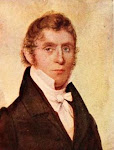The beginning of the journey sounds innocuous enough: the young student read a book while she was home sick. Yet that book seems to have left its mark on her, giving her a sense of mission that she probably didn't expect to find when she started it. Not for the first time, random chance introduced someone to the problem of modern-day slavery, and an unexpected passion was ignited by a surprising source.
 Somaly Mam, enslaved as a child prostitute in Cambodia at the age of 12, had written about her decade-long half-life in South-East Asian brothels, as well as her efforts on behalf of girls still trapped in sexual slavery, in her 2008 book "The Road of Lost Innocence” (now in paperback). From her foundation's website:
Somaly Mam, enslaved as a child prostitute in Cambodia at the age of 12, had written about her decade-long half-life in South-East Asian brothels, as well as her efforts on behalf of girls still trapped in sexual slavery, in her 2008 book "The Road of Lost Innocence” (now in paperback). From her foundation's website:Written in exquisite, spare, unflinching prose, The Road of Lost Innocence recounts the experiences of her early life and tells the story of her awakening as an activist and her harrowing and brave fight against the powerful and corrupt forces that steal the lives of these girls. She has orchestrated raids on brothels and rescued sex workers, some as young as five and six; she has built shelters, started schools, and founded an organization that has so far saved more than four thousand women and children in Cambodia, Thailand, Vietnam, and Laos.Montana high school student Tierney Strandberg said that after finishing the memoir she was "overwhelmed", eager to do something, anything, to help:
“I knew as an International Baccalaureate student, I would have access to people who would help,” Strandberg said. “People are interested [in international issues] and they have power in the school to do something about it.”Then a further coincidence occurred. Shortly after her return to school, a representative of the Flathead Abolitionist Movement asked if the group that Strandberg was involved with could show “Call + Response,” a documentary about the global slave trade, at the school.
“I just about jumped out of my seat,” [coordinator Genia Allen-Schmid] said. “I said, ‘We have a student who wants to do this very thing.’”How does that old expression put it...: "Being the Right Person, at the Right Place, at the Right Time"... When I was Ms. Strandberg's age I would have interpreted that saying to mean that favorable chance and good fortune are out of our control, yet hers is a case study in how one's own self-initiative, the spark of taking action, ennobles us to become the Right Person, it puts us at the Right Place, it assists us in finding the Right Time.
Strandberg leapt at the opportunity to get involved with the abolitionist group. She started a corresponding student group, FAM at FHS, and has worked tirelessly to help the community group find ways to get high school students involved in the cause.
...
Strandberg is in a unique position of being able to raise awareness about human trafficking nearly every weekend. She is a member of Flathead’s speech and debate team, and her original oratory speech is all about modern-day slavery.
“It’s really cool to give my speech all over the state every weekend,” Strandberg said. “I’m trying to cultivate awareness. It’s really hard to realize as a teenage girl that this is happening all over the world — and people don’t know. Really, people don’t know.”
The judges who hear her speech are often shocked, she said. Judges give feedback on speeches, and Strandberg’s comments have ranged from, “I can’t believe I didn’t know about this,” to “You need to be president.”
Strandberg said she is just glad for the opportunity to raise awareness about such an important topic.
“I’m not necessarily changing the world, but I am making a difference, if even a small one,” she said. “I really believe in the power of one.”
God Bless you, young lady, for believing you can make a difference: that belief has to come first, if the difference is to come later.
[An equally inspiring story of Illinois teenagers embracing the challenge to raise awareness of modern-day slavery, here.]

No comments:
Post a Comment